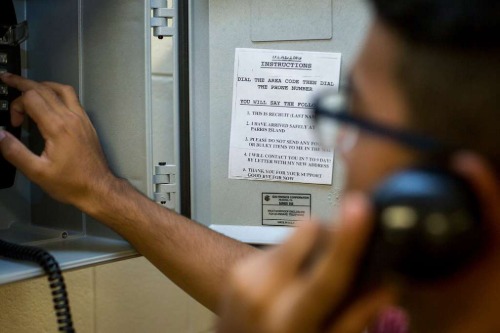1. Statewide Bans on Book Bans

In response to rising censorship efforts, Illinois became the first state in 2023 to pass a law banning book bans in public libraries. The law states that libraries must adopt the American Library Association’s Library Bill of Rights or lose state funding. Just a few years earlier, most of the national debate was focused on whether certain books should be pulled—not whether that kind of censorship should be legally blocked. But as school boards began removing books dealing with race, gender, and sexuality, some states fought back.
Illinois took a hard stance, treating access to information as a civil right. It was a bold move in an environment where book challenges had reached record highs. Ten years ago, nobody would’ve guessed that protecting library books would become a legislative battleground. Now, it’s one of the sharpest fronts in America’s culture wars.
2. Oregon’s Decriminalization of Hard Drugs

In 2020, Oregon became the first U.S. state to decriminalize possession of small amounts of drugs like heroin, cocaine, and methamphetamine. Instead of jail time, people caught with these substances now face a civil citation and a potential $100 fine, which can be waived with a health assessment. The law, known as Measure 110, redirected cannabis tax revenue toward addiction treatment and harm reduction services. Ten years ago, this idea would’ve sounded like political suicide.
The goal here wasn’t to endorse drug use, but to treat it more like a public health issue than a criminal one. The shift mirrors what countries like Portugal have done, and early data shows mixed results, prompting ongoing debate. Still, the sheer fact that this law passed with voter support shows how radically attitudes have shifted. Back in 2013, even discussing this policy seriously would’ve gotten you laughed out of most rooms.
3. California’s Ban on Gas-Powered Car Sales by 2035

California’s decision in 2022 to ban the sale of new gas-powered cars starting in 2035 marked a dramatic pivot in environmental legislation. The rule mandates that all new vehicles sold in the state must be zero-emission, and it sets interim targets to ramp up electric vehicle sales. A decade ago, such a sweeping regulation would’ve been dismissed as futuristic or flat-out unrealistic. But growing concern over climate change pushed the state to act decisively.
What’s even more surprising is that several other states have started drafting similar plans, using California’s policy as a template. Back in 2013, electric cars were still considered niche, and “Tesla” was more Silicon Valley curiosity than mainstream automaker. Now, entire state economies are being reshaped around clean energy and battery infrastructure. The law doesn’t just signal environmental awareness—it reflects a fundamental change in how we see transportation.
4. Gun Reform Laws Passed in Deep-Red States

In 2023, Tennessee passed a bill creating a path for courts to temporarily remove guns from people deemed dangerous, following a high-profile school shooting in Nashville. While it’s not as broad as “red flag” laws in blue states, it was still a major shift for a deeply conservative state with strong Second Amendment culture. Just ten years ago, even proposing this kind of legislation would’ve ended a politician’s career in many red states. But the rising toll of mass shootings has shifted the conversation.
Some Republican lawmakers have even begun to signal that certain forms of gun control—once untouchable—may now be politically survivable. In states like Florida and Texas, talk of background check expansions or waiting periods isn’t immediately dismissed anymore. It’s incremental, but it’s new. And it shows just how much public pressure and tragedy can reshape the debate.
5. Laws Recognizing Non-Binary Gender on Official IDs

By 2022, over 20 states and the District of Columbia had introduced a third gender option—usually marked “X”—on driver’s licenses and state IDs. This allows non-binary, intersex, and gender-nonconforming individuals to select a gender that reflects their identity. In 2013, government forms still clung tightly to the male/female binary, with virtually no exceptions. Even in progressive states, the idea of legal recognition for non-binary people was rarely discussed.
The fact that you can now get an “X” on your ID in places like Colorado, New York, and even Arkansas represents a profound cultural shift. It’s not just symbolic—it affects access to healthcare, travel, and basic dignity. These laws also show that LGBTQ+ advocacy has moved into previously overlooked legal details. A decade ago, the idea of rethinking the gender markers on official documents would’ve seemed radical.
6. Mississippi Legalizing Medical Marijuana

In 2022, Mississippi—yes, Mississippi—officially legalized medical marijuana through Senate Bill 2095. The program allows patients with certain conditions to access cannabis products from licensed dispensaries, with regulation by the state health department. This came just a year after the state’s Supreme Court controversially overturned a medical marijuana initiative approved by voters. The backlash was so strong that lawmakers passed the bill themselves the following year.
Considering Mississippi’s long-standing conservative policies and history with the War on Drugs, this law is shocking. Medical marijuana was once seen as a California quirk, not something for the Deep South. Now it’s part of a growing bipartisan trend that includes Alabama, Louisiana, and Arkansas. A decade ago, even whispering about legal weed in Mississippi politics would’ve been enough to get you sidelined.
7. States Mandating Paid Family Leave

In the past few years, states like Colorado, Oregon, and Delaware have passed paid family and medical leave programs funded through payroll taxes. These laws guarantee workers a certain number of weeks of paid time off to care for a new child, a sick family member, or their own health. Before this wave, only a handful of states like California had such policies, and the idea of expanding them seemed politically unrealistic. After all, the U.S. is one of the only wealthy nations without federal paid leave.
Now, voters are demanding it, and even businesses are getting on board in some cases. The COVID-19 pandemic played a big role in this shift, exposing just how vulnerable most American workers are. These new laws show that what was once seen as a luxury is now considered basic infrastructure. A decade ago, “paid leave for all” was mostly campaign rhetoric—now it’s law in several states.
8. Utah Mandating Parental Consent for Kids on Social Media

In 2023, Utah passed a first-of-its-kind law requiring parental consent for minors to use social media platforms like Instagram, TikTok, and Snapchat. The law also enforces a digital curfew, preventing kids from accessing their accounts overnight unless parents change the settings. Platforms must verify the age of users and ensure parents can access their children’s posts and messages. Back in 2013, lawmakers were more focused on expanding tech, not limiting it.
This represents a major reversal in how we think about kids and technology. At the time, social media was still viewed as mostly harmless—maybe a little distracting, but not dangerous. Now, with mounting concerns about mental health, cyberbullying, and addiction, some states are pushing back hard. Utah’s law may face legal challenges, but it reflects a broader cultural shift that would’ve seemed alarmist just a few years ago.
9. California’s $25 Minimum Wage for Fast Food Workers

In 2023, California passed a landmark law raising the minimum wage for fast food workers to $20 per hour, with a path to $25 by 2025 for some sectors. This was no ordinary wage hike—it was targeted specifically at a major industry, long known for low pay and high turnover. Lawmakers said it was time for wages to match the real cost of living in a high-expense state like California. Ten years earlier, a $15 minimum wage was still being derided as “radical.”
Now, a number that once seemed utopian is already being outpaced. The law includes fast food restaurants with 60 or more locations nationwide, so it’s aimed at corporate giants rather than small businesses. It signals that wage reform is no longer a fringe issue but a mainstream legislative goal. For a long time, fast food work was dismissed as “starter jobs”—this law says otherwise.
10. Alabama Ending Permit Requirements for Concealed Carry

In 2022, Alabama passed a law allowing residents to carry a concealed handgun without a permit—something known as “constitutional carry.” While several other red states had already moved in this direction, Alabama’s embrace of the policy marked a significant milestone. A decade ago, even in conservative circles, most people agreed you should at least pass a background check or get a permit to carry concealed. Now, the idea of “shall not be infringed” is being interpreted more literally than ever.
Supporters say it reinforces Second Amendment rights, while critics warn it removes important safety checks. Either way, the law represents a broader shift toward deregulating firearm ownership. Even as other parts of the country tighten gun laws, some states are going the opposite direction—faster and further than ever before. Alabama’s law is a perfect example of how far the Overton window has moved in both directions at once.
11. Massachusetts Granting Prisoners Free Phone Calls

In 2023, Massachusetts passed legislation making all phone calls from state prisons and jails free of charge to incarcerated individuals and their families. The move was part of a growing effort to reduce the financial burden of incarceration on families, who previously paid high rates just to stay in touch. For years, these calls were outsourced to private companies that charged as much as $1 per minute. Ten years ago, nobody in power was really talking about how expensive it was just to call home from jail.
Now, lawmakers are treating family contact as a matter of public interest, not just profit. Research shows that keeping in touch with loved ones helps reduce recidivism and improve post-release outcomes. By removing this barrier, Massachusetts is leading a growing national push for criminal justice reform through small, meaningful policies. It’s a far cry from the “tough on crime” stance that dominated American politics not so long ago.
12. New York Restricting Facial Recognition in Schools

In 2020, New York passed a moratorium banning facial recognition technology in public schools, following concerns about student privacy and racial bias. The law came after a school district in upstate New York tried to deploy the technology for security purposes. Parents, civil rights groups, and privacy advocates pushed back, arguing that scanning kids’ faces was invasive and potentially discriminatory. A decade ago, schools adopting high-tech surveillance would’ve been hailed as innovative, not problematic.
But the rise of AI and big data has made people far more skeptical of how these tools are used. New York’s move reflects a growing concern that surveillance technology can do more harm than good, especially in educational settings. Other states, like Massachusetts and California, are considering similar bans or regulations. It’s a remarkable turnaround from the early 2010s, when tech in schools was mostly about speeding up learning—not watching students.
This post New American Laws That Would’ve Been Unthinkable Just a Decade Ago was first published on American Charm.


